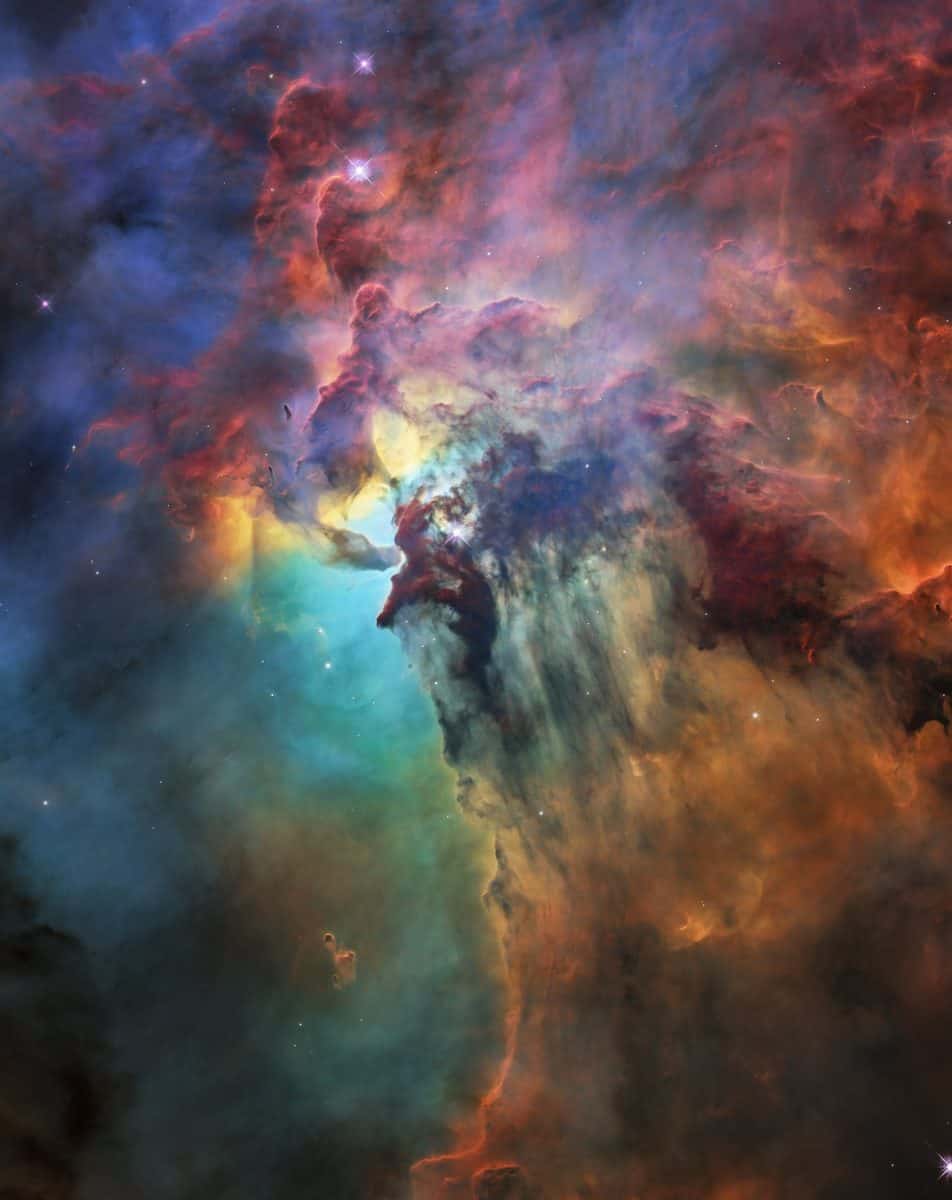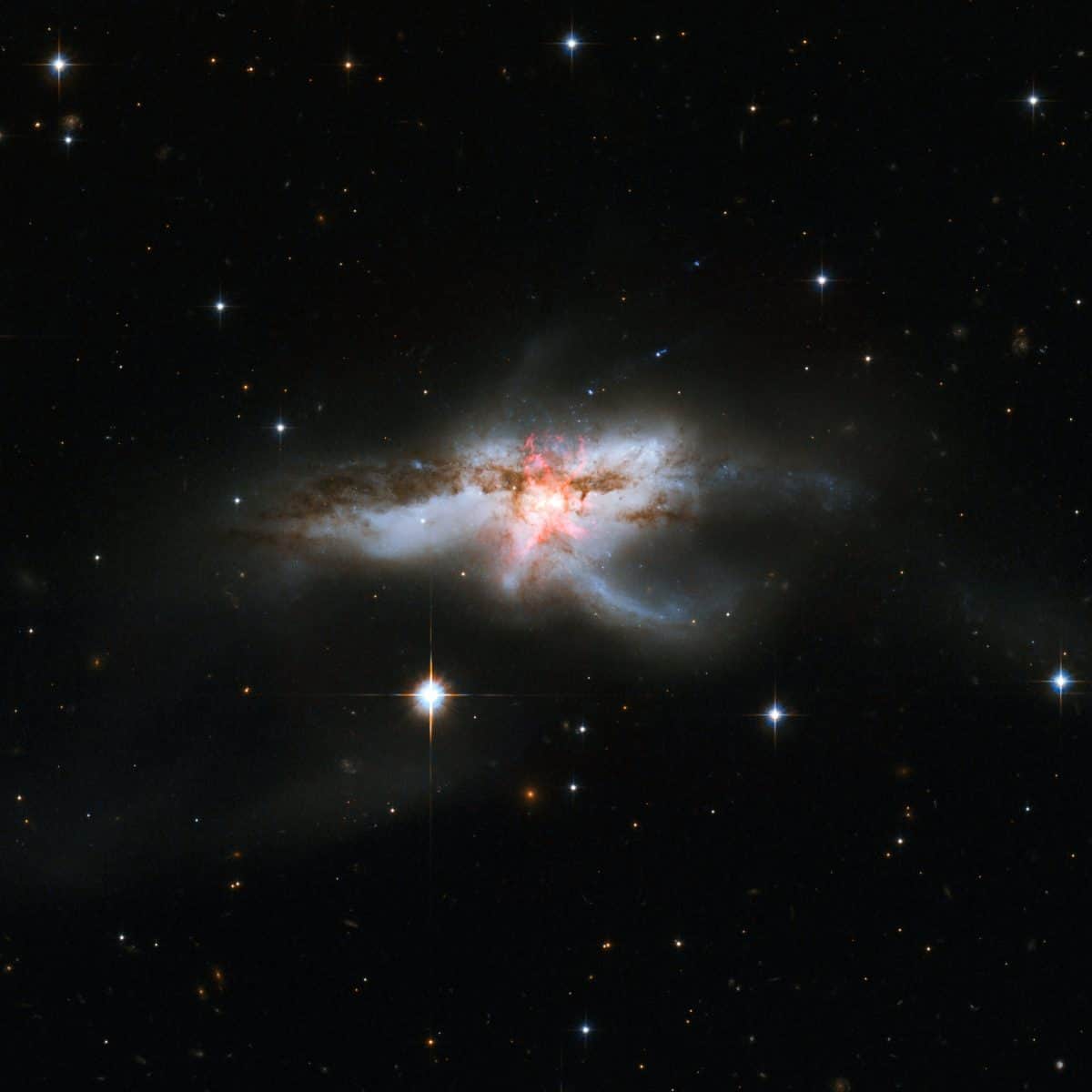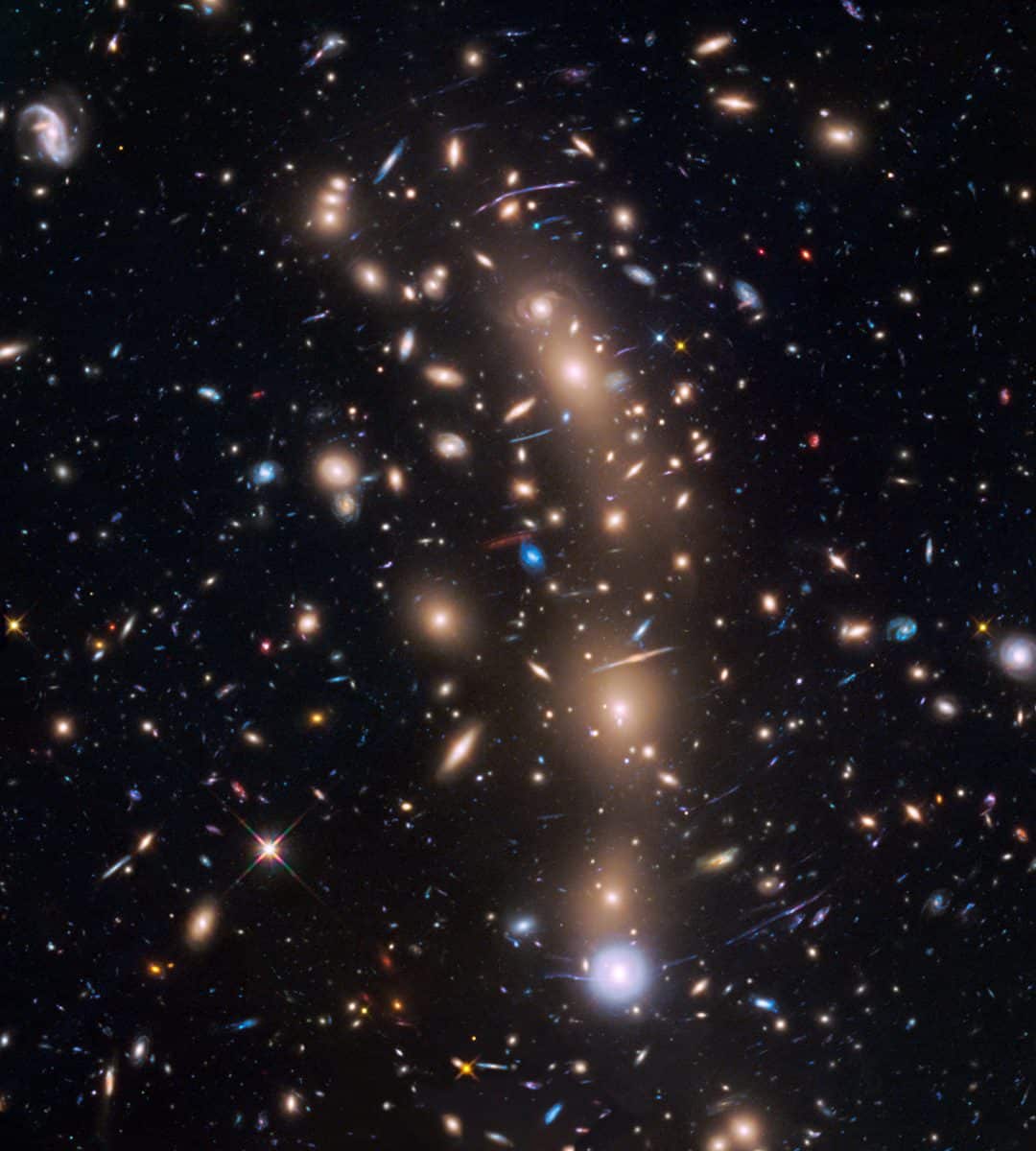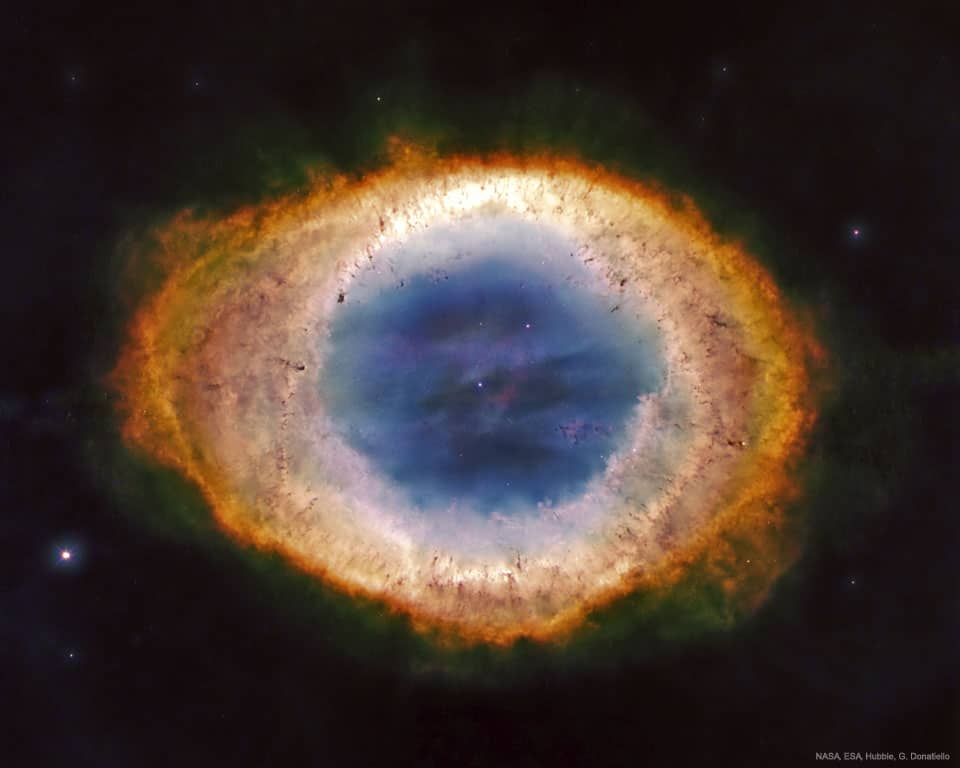Blog
Performing for Mt Zion Shabbat Service
Friday April 20th 7-9pm
The Lagoon Nebula (catalogued as Messier 8 or M8, NGC 6523, Sharpless 25, RCW 146, and Gum 72) is a giant interstellar cloud in the constellation Sagittarius. It is classified as an emission nebula and as an H II region.
To celebrate its 28th anniversary in space the NASA/ESA Hubble Space Telescope took this amazing and colourful image of the Lagoon Nebula. The whole nebula, about 4000 light-years away, is an incredible 55 light-years wide and 20 light-years tall. This image shows only a small part of this turbulent star-formation region, about four light-years across.
This stunning nebula was first catalogued in 1654 by the Italian astronomer Giovanni Battista Hodierna, who sought to record nebulous objects in the night sky so they would not be mistaken for comets. Since Hodierna’s observations, the Lagoon Nebula has been photographed and analysed by many telescopes and astronomers all over the world.
more...
Ernesto Antonio “Tito” Puente (April 20, 1923 – May 31, 2000) was an American musician, songwriter and record producer. The son of Ernest and Ercilia Puente, native Puerto Ricans living in New York City’s Spanish Harlem, Puente is often credited as “The Musical Pope”, “El Rey de los Timbales” (The King of the Timbales) and “The King of Latin Music”. He is best known for dance-oriented mambo and Latin jazz compositions that endured over a 50-year career. He and his music appear in many films such as The Mambo Kings and Fernando Trueba‘s Calle 54. He guest-starred on several television shows, including Sesame Street and The Simpsons two-part episode “Who Shot Mr. Burns?“. His famous song is “Oye Como Va”.
Tito Puente was born on April 20, 1923, at Harlem Hospital Center in the New York borough of Manhattan. His family moved frequently, but he spent the majority of his childhood in the Spanish Harlem area of the city. Puente’s father was the foreman at a razorblade factory.
https://www.youtube.com/watch?v=_OG1OzHb1Hc
more...Lionel Leo Hampton (April 20, 1908 – August 31, 2002) was an American jazz vibraphonist, pianist, percussionist, bandleader and actor. Hampton worked with jazz musicians from Teddy Wilson, Benny Goodman, and Buddy Rich to Charlie Parker, Charles Mingus, and Quincy Jones. In 1992, he was inducted into the Alabama Jazz Hall of Fame, and was awarded the National Medal of Arts in 1996.
Lionel Hampton was born in 1908 in Louisville, Kentucky, and was raised by his mother. Shortly after he was born, he and his mother moved to her hometown Birmingham, Alabama.
more...World Music on Flamenco Fridays
CAMARÓN DE A ISLA, TOMATITO, RAFAEL Y RAIMUNDO AMADOR, CARMELILLA MONTOYA. Flamenco jondo, toque baile y cante en su máxima expresión de pureza, entendiendo esta como sinónimo de calidad, alejada totalmente de la comercialidad y la oficialidad. DIFUSIÓN DEL PATRIMONIO CULTURAL D´AQUÍ, SIN ÁNIMO DE LUCRO.
more...Sounds of Thunder
more...Not all galaxies are neatly shaped, as this new NASA/ESA Hubble Space Telescope image of NGC 6240 clearly demonstrates. Hubble previously released an image of this galaxy back in 2008, but the knotted region, shown here in a pinky-red hue at the centre of the galaxies, was only revealed in these new observations from Hubble’s Wide Field Camera 3 and Advanced Camera for Surveys.
NGC 6240 lies 400 million light-years away in the constellation of Ophiuchus (The Serpent Holder). This galaxy has an elongated shape with branching wisps, loops and tails. This mess of gas, dust and stars bears more than a passing resemblance to a butterfly and, though perhaps less conventionally beautiful, a lobster.
This bizarrely-shaped galaxy did not begin its life looking like this; its distorted appearance is a result of a galactic merger that occurred when two galaxies drifted too close to one another. This merger sparked bursts of new star formation and triggered many hot young stars to explode as supernovae. A new supernova was discovered in this galaxy in 2013, named SN 2013dc. It is not visible in this image, but its location is indicated here.
At the centre of NGC 6240 an even more interesting phenomenon is taking place. When the two galaxies came together, their central black holes did so too. There are two supermassive black holes within this jumble, spiralling closer and closer to one another. They are currently only some 3000 light-years apart, incredibly close given that the galaxy itself spans 300 000 light-years. This proximity secures their fate as they are now too close to escape each other and will soon form a single immense black hole.
more...George Bernard “Bernie” Worrell, Jr. (April 19, 1944 – June 24, 2016) was an American keyboardist and composer best known as a founding member of Parliament-Funkadelic and for his work with Talking Heads. He is a member of the Rock and Roll Hall of Fame, inducted in 1997 with fifteen other members of Parliament-Funkadelic. Worrell was described by Jon Pareles of The New York Times as “the kind of sideman who is as influential as some bandleaders.”
Worrell was born in Long Branch, New Jersey, and grew up in Plainfield, New Jersey, where his family moved when he was eight.[1] A musical prodigy, he began formal piano lessons by age three and wrote a concerto at age eight. He went on to study at the Juilliard School and received a degree from the New England Conservatory of Music in 1967. As a college student, Worrell played with a group called Chubby & The Turnpikes; this ensemble eventually evolved into Tavares.
more...Thomas “Tommy” Benford (April 19, 1905 – March 24, 1994) was an American jazz drummer.
Tommy Benford was born in Charleston, West Virginia. He and his older brother, tuba player Bill Benford, were both orphans who studied music at the Jenkins Orphanage in Charleston, South Carolina. He went on tour with the school band, traveling with them to England in 1914.
In 1920, he was working with the Green River Minstrel Show. Benford recorded with Jelly Roll Morton in 1928 and 1930. He also played with Duke Ellington, Fats Waller and Eddie South. During the 1930s he stayed in Europe for a longer time, where he recorded with Coleman Hawkins, Bill Coleman, Joe Turner, Django Reinhardt, and Sidney Bechet.
more...Petrona Martínez was Born January 27, 1939 in San Cayetano, Colombia. She is one of the most important Afro-Colombian artists in Caribbean Colombia. She learned the bullerengue in an spontaneous manner, very early in her life.
more...Weeping Pirates
more...MACS J0416.1-2403 is a galaxy cluster at a redshift of z=0.397 with a mass 160 trillion times the mass of the Sun inside 200 kpc (650 kly). Its mass out to a radius of 950 kpc (3,100 kly) was measured as 1.15 × 1015 solar masses. The system was discovered during the Massive Cluster Survey, MACS. This cluster causes gravitational lensing of distant galaxies producing multiple images. In 2015, the galaxy cluster was announced as gravitationally lensing the most distant galaxy (z = 12).[citation needed] Based on the distribution of the multiple image copies, scientists have been able to deduce and map the distribution of dark matter.
more...Clyde Austin Stubblefield (April 18, 1943 – February 18, 2017) was an American drummer best known for his work with James Brown. A self-taught musician, he was influenced by the sound of natural rhythms around him. His drum patterns on Brown’s recordings are considered funk standards. He recorded and toured with Brown for six years and settled in Madison, Wisconsin, where he was a staple of the local music scene. Often uncredited, samples of his drum patterns were heavily used in hip-hop music. He was the recipient of an honorary doctorate in fine arts.
Born to Frank D. and Vena Stubblefield on April 18, 1943, he grew up in Chattanooga, Tennessee. As a youngster his sense of rhythm was influenced by the industrial sounds of factories and trains around him. He was inspired to pursue drumming after seeing drummers for the first time in a parade. He played professionally as a teenager.[6] In early 1960s he worked with guitarist Eddie Kirkland and toured with Otis Redding.
more...Harold Galper (born April 18, 1938) is a jazz pianist, composer, arranger, bandleader, educator, and writer.
He studied classical piano as a boy, but switched to jazz which he studied at the Berklee College of Music from 1955 to 1958.[1] He hung out at Herb Pomeroy’s club, the Stable, hearing local Boston musicians such as Jaki Byard, Alan Dawson and Sam Rivers. Galper started sitting in and became the house pianist at the Stable and later on, at Connelly’s and Lenny’s on the Turnpike. He went on to work in Pomeroy’s band.
Later on he worked with Chet Baker and Stan Getz and accompanied vocalists Joe Williams, Anita O’Day, and Chris Connor.
Between 1973-1975, Galper played in the Cannonball Adderley Quintet replacing George Duke. He performed in New York and Chicago jazz clubs in the late 1970s. Around this time, Galper recorded several times with guitarist John Scofield for the Enja label.
more...Leo Parker (April 18, 1925, Washington, D.C. – February 11, 1962, New York City) was an American jazz musician who played baritone saxophone.
Parker studied alto saxophone in high school, and played this instrument on a recording with Coleman Hawkins in 1944. He switched to baritone saxophonelater that year when he joined Billy Eckstine‘s bebop band, playing there until 1946. In 1945 he was a member of the so-called “Unholy Four” of saxophonists, with Dexter Gordon, Sonny Stitt and Gene Ammons. He played on 52nd Street in New York with Dizzy Gillespie in 1946 and Illinois Jacquetin 1947-48, and later recorded with Fats Navarro, J.J. Johnson, Teddy Edwards, Wardell Gray and Charles Thompson. He and Thompson had a hit with their Apollo Records release, “Mad Lad”.
In the 1950s, Parker had problems with drug abuse, which interfered with his recording career. He made two comeback records for Blue Note in 1961, but the following year he died of a heart attack. He was 36.
https://www.youtube.com/watch?v=f925V7jnZAQ
more...Eurreal Wilford “Little Brother” Montgomery (April 18, 1906 – September 6, 1985) was an American jazz, boogie-woogie and blues pianist and singer.
Largely self-taught, Montgomery was an important blues pianist with an original style. He was also versatile, working in jazz bands, including larger ensembles that used written arrangements. He did not read music but learned band routines by ear—once through an arrangement and he had it memorized.
Montgomery was born in Kentwood, Louisiana, a sawmill town near the Mississippi border, across Lake Pontchartrain from New Orleans, where he spent much of his childhood. Both his parents were of African-American and Creek Indian ancestry. As a child he looked like his father, Harper Montgomery, and was called Little Brother Harper. The name evolved into Little Brother Montgomery, and the nickname stuck. He started playing piano at the age of 4, and by age 11 he was playing at barrelhouses in Louisiana. His main musical influence was Jelly Roll Morton, who used to visit the Montgomery household.
more...Xu Ke was born in 1960 in Nanjing, China. He received his B.M. in 1982 with honor from the Department of National Music at the Central Conservatory of Beijing, where he studied under the erhu master Mr. Yusong Lan. He was the principal Erhu player of the China National Traditional Orchestra in 1983.
more...Richman Poorman
https://www.youtube.com/watch?v=lAZx3TxilnQ&index=8&list=PLEB3LPVcGcWZ0hsQ5_jgSMhawAnDzy1io.
more...
Except for the rings of Saturn, the Ring Nebula (M57) is probably the most famous celestial band. Its classic appearance is understood to be due to our own perspective, though. The recent mapping of theexpanding nebula’s 3-D structure, based in part on this clear Hubble image,indicates that the nebula is a relatively dense, donut-like ring wrapped around the middle of a (American) football-shaped cloud of glowing gas. The view from planet Earth looks down the long axis of the football, face-on to the ring. Of course, in this well-studied example of a planetary nebula, the glowing material does not come from planets. Instead, the gaseous shroud represents outer layers expelled from the dying, once sun-like star, now a tiny pinprick of light seen at the nebula’s center. Intense ultraviolet light from the hot central star ionizes atoms in the gas. The Ring Nebulais about one light-year across and 2,000 light-years away.
more...More Posts
- Wilson Pickett
- José Mangual
- Daily Roots with Dennis Brown
- Flamenco Fridays with Ukrainian Guitarist Estas Tonne
- Happy St Paddys Day 2022
- Cozmos NGC 5129
- Paul Kantner
- Zoletta Lynn Taylor
- Paul Horn
- Nat King Cole
- Lovie Lee
- World Music DrymbaDadzyga
- Daily Roots Mortimer
- Cozmos M16
- Jerry Jeff Walker
- Jeter Thompson
- Tommy Flanagan
- Son Bonds
- World Music Trio Mandili
- Daily Roots Gladiators



